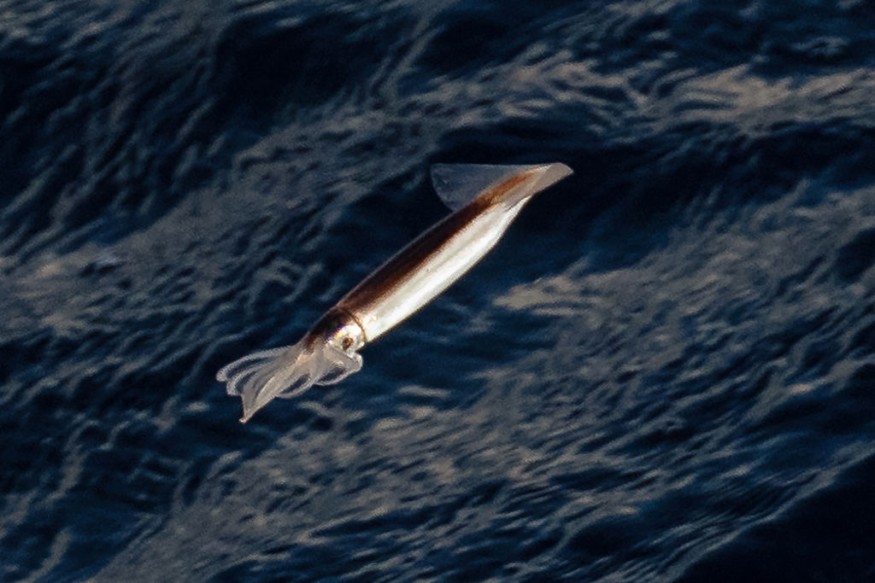For many, the day we are born has no bearing on our life choices. However, for the male spear squid, their hatch date is a life-altering event that determines their entire dating strategy.
A recent study published in the journal Royal Society Open Biology reveals that these squids fall into one of two categories: consorts or sneakers.
Early Hatchlings Become Brawny Bodyguards, Latecomers Turn to Sneakier Tactics

Consorts, typically early hatchlings, are the brawny bodyguards of the squid world, using their size and strength to fight for mates and guard females.
Sneakers, on the other hand, are the stealthy schemers, born later in the season and employing sneakier tactics to inseminate females indirectly.
This fascinating discovery suggests that a squid's birth date plays a significant role in shaping its reproductive behavior.
The study's authors believe that the environmental conditions a squid experiences early in life, such as water temperature and food availability, influence its development and ultimately determine its chosen tactic.
Early hatchlings, benefiting from a potentially richer environment, grow larger and become consorts. Conversely, later hatchlings, emerging during a time of possibly fewer resources, mature into smaller sneaker squids.
The Brawny Bodyguards: Consorts and Their Dominance
Consorts, the larger male spear squids, are the undisputed tough guys of the squid world. Their larger size, a result of hatching early in the season when resources are more plentiful, grants them a significant advantage in fights over mates.
When a female spear squid is ready to mate, consorts engage in ritualized combat, grappling and wrestling with each other in a display of strength and dominance.
The victor earns the right to mate with the female and guard her as she lays her eggs. This bodyguard role is crucial, as females are vulnerable to predators while spawning. The consort's presence helps to deter attackers and ensure the survival of the offspring.
However, the consort's life is not all glory and victory. Their size and dominance also make them conspicuous targets for predators. Additionally, the constant fighting and mating activity can be energetically expensive.
The Sneaky Strategists: Sneakers and their Clandestine Tactics
While consorts win mates through brute force, sneakers take a more strategic approach. These smaller, later-hatching squids lack the physical prowess to compete directly with consorts.
However, they make up for their size disadvantage with cunning and stealth. Sneakers employ a variety of tactics to inseminate females without engaging in fights.
One common tactic is to mimic the female's form and markings, allowing them to slip past the consort unnoticed and fertilize the eggs externally. Sneakers may also take advantage of the consort's distraction during mating to dart in and deliver their sperm.
The sneaker strategy is not without its risks. The smaller size of sneakers makes them more vulnerable to predators themselves. Additionally, their success depends on their ability to outwit the consort, a challenge that becomes increasingly difficult as females become more selective with age.
Nature or Nurture: The Squid's Dilemma
The study has sparked debate among scientists about the relative influence of nature versus nurture in shaping animal behavior.
While genetics undoubtedly play a role, the squid's remarkable dependence on its birth date for such a crucial aspect of its life highlights the profound impact of environmental factors.
This research not only sheds light on the complex social dynamics of the squid world but also holds potential implications for our understanding of reproductive strategies in other species.
It raises intriguing questions about the interplay between genes and environment in shaping behavior, reminding us that even the seemingly insignificant detail of a birth date can have far-reaching consequences.
Related article: A Giant Squid With a Size of 9-Ft Found in the Seas of Japan
© 2025 NatureWorldNews.com All rights reserved. Do not reproduce without permission.





